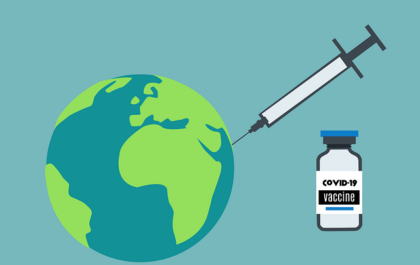I think about how lucky I was to have experienced the 1990s. It was such a happy time. There was Britpop and Oasis, Bill Clinton and Monica Lewinsky, all those lovely people from the east like the East Germans, the Poles, the Czechs. The Americans liked the Russians and the Russians suddenly liked everyone. It seemed like one big happy “sex in the city” party to us and the fact that I can write this shows how little the world cared at the time about the misery the collapse of the Soviet Union also caused, the civil war in collapsing Yugoslavia with genocide on our doorsteps, the first Gulf War which was then continued a decade later. To me, the happy time ended abruptly on 9/11 2001. It was my “where were you when it happened” moment, just as the Kennedy assassination was for the generation before us.
On the morning of 11 September 2001, I drove out to Betzdorf. It was a lovely warm end of summer day and the drive through the forest to get to the headquarters of SES, one of the world’s largest commercial satellite operation centers, was very impressive. I remember thinking that I would have loved to have an office in the forest and how lucky the people were that worked there. I had a meeting with some engineers about their potential intercept capabilities of communications that passed their satellites. They were excited that these were about to get real with new services that SES was about to launch.
On my way driving back to the office I received a phone call from my colleague Roger, telling me about a terrible accident that had just happened in New York where a passenger airliner had crashed into one of the World Trade Center towers. When I arrived a few minutes later at the offices of the Luxembourg Intelligence Service, most of the staff had gathered in the conference room, the only room with a television, all staring at CNN’s live coverage of the events. As I walked in the room, the door handle still in my hand and my eyes focusing on the TV, at that exact moment, the second plane crashed into the second tower. All was clear in an instant; the United States was under attack. It was equally clear to me that the world had just changed, that the mighty sleeping dragon had just been woken up.
Within minutes messages and cables from all over the world started hitting the communications room. Flash messages requiring immediate attention with confusing accounts of reactions by certain targets in other countries, seemingly rejoicing at the events which were unfolding. It seemed that certain Islamic extremists were celebrating.
My meetings with the Americans the following days went from shock and disbelief to anger. Over the following weeks it became clear that America was gearing up to relentlessly hunt the culprits and were out for retaliation and revenge. It also only took a few days for us to realize that this retaliation would be on Afghanistan where its Taliban leadership had offered sanctuary to Osama bin Laden and his organization al-Qaeda. We knew about Osama bin Laden since the Americans kept warning us for months that this person would be a problem. Our services in Europe ignored these warnings, arrogantly brushed them off as some American paranoid fantasy of some mysterious bogeyman. The Americans had the intelligence and knew that al-Qaeda would strike, but we Europeans ignored it. The result was that Mohamed Atta’s cell was able to form unhindered in Hamburg in Germany, planning the attacks on the U.S. in all tranquility. The Americans will never forget and forgive us for this, as to them we Europeans are in some way co-conspirators in the attacks, allowing these attacks to have taken place. This rupture of friendship and trust has not healed to this day. I remember the quotes at the time by the U.S. administration. First, George W Bush declared “war on terrorism”, war not on a country but on an undefinable concept allowing for anyone to be classed as an enemy. Then there was the “you are either with us or against us” view which was more a warning to America’s allies than to anyone else. So, we all decided to be with them on that one.
When the U.S. declared war on countries that harbored terrorists this, I thought, was a theoretical declaration of war on everyone, at least potentially. We didn’t know if we harbored terrorists. It was a possibility, just as it had been in Germany. These were very different tones from a U.S. President than “I did not have sexual relations with that woman”. These were real threats, directed as much towards us as towards Afghanistan. When the US was gearing up for attacking Afghanistan, media spoke about a new potential Vietnam, that no one could win in Afghanistan. Today therefore, seems like an “I told you so” moment. After a decade of casualties, of the worst human rights violations imaginable, of ignoring any form a of international law or the Geneva Conventions, of illegally kidnapping (extraordinary renditions), detaining, systematically torturing and imprisoning without proper rights for justice countless individuals, the U.S. has lost, permitting the question, “Was this worth it?”. Why did we all, why did our service, support every and any request and demand by the CIA, no matter how idiotic these were? In hindsight it is easy to see; career building requests like box ticking the various expected achievements, the recruitment of “x” number of sources, the bugging of “x” amount of target sites, one “silent drill” operation, all not to combat any particular threat, but to help intelligence officers on their career paths and advancement to more senior positions.
A few weeks following the attacks, my boss and I visited our colleagues in the U.S. At one of these “7th floor” meetings in Langley, we were received by the director of operations Jim Pavitt. There was a strong link between Jim and Luxembourg since he had served there as CIA station chief in the early 1980s and became a close personal friend of Charles Hoffman, the then director of the Luxembourg Intelligence Service. Jim’s office was filled with Luxembourg memorabilia, his dog was called Bofferding. It was quite surreal that the person directing the CIA operations in Afghanistan, as well as the rest of the world, was looking at pictures of Luxembourg hanging on his wall while doing so. The topic of the meeting which took about 40 minutes was surprisingly, exclusively on resources. “What do you need?” we were asked as if we had just come from some third world country without typewriters. “You can have anything you ask for”. My boss and I looked slightly perplexed at one another not knowing what to ask for. Rather, we were expecting a briefing on the concept, the American strategy in Afghanistan, how the CIA saw the conflict unfolding in the short, medium and long-term, something that we could have reported back to our government justifying our trip. No such information was provided, not because they didn’t want to, but they simply did not know. They had endless resources, complete green light for anything, endless technology and limitless staff, but no vision. In fact, they never have.
A few years later, my boss and I visited our Russian colleagues in Moscow. On the second day we had a meeting with the director general of Russia’s foreign intelligence service, the SVR. Sergei Lebedev, who spoke fluent German, spent an entire day with us, outlining in detail his service’s short, medium- and long-term vision of the world. The director described in 2004 the world of today. He explained that the consequences of Europe’s recognition of independence of part of Serbia (he meant Kosovo) would undoubtedly lead to Moscow’s intervention in Georgia and the Ukraine. He described how U.S. policies in Afghanistan, Iraq and the Middle East would fail, how conflict with Russia would grow, how China would become dominant and how Europe, just like the US, sees the world with their eyes in periods of legislative cycles, and therefore simply has no room for long term perspective and planning. While we obviously did not agree on some of Russia’s policies, it was one of the most intelligent and eye-opening briefings I had ever received. The difference in quality, in intellect and in analytical capacity was extreme.
Lebedev mapped the world and its conflicts and challenges of today 15 years ago. In his outline the director mentioned the significance of the Silk Road, both historically and in the future and how trade and trade networks throughout Asia, of which Russia is a part of, will shape the world to come. He described the Taliban as first and foremost traders of the Silk Road, not so much as terrorists. In fact, he described how the danger from the Taliban-controlled global heroin trade (75%) is far more dangerous to the planet than any act of terror they may be involved in or their placid tolerance of al-Qaeda. Lebedev outlined how in Russia’s view Asia would gain world dominance in our lifetime and that Afghanistan, just like Russia, would play a role in this. Europe had a choice to make, whether it wanted a role, but America’s world dominance would shrink as it would play very little part here. Europe seems to have recognized that it has a role to play in this pan Euro-Asian trade network which includes Afghanistan and the Taliban. We should have learned by now that democracy may not be the model for all countries and that it certainly cannot be imposed on nations at gunpoint. Changes have to come from within. It has taken centuries for our democracies to emerge, and they are still fragile, their durability questioned by politicians like the former Secretary of State Madeleine Albright who in a 2018 interview with the New York Times asks herself “if the democratic banner can remain aloft in the West amid storm clouds that have gathered” and warns that “we should be vigilant of the lessons of history in order to prevent the return of fascism”.
The Taliban declared in February 2018 that major infrastructure projects in the region such as the Turkmenistan-Afghanistan-Pakistan-India pipeline and all other multilateral cross border projects will receive full cooperation by the Islamic Emirate and that these projects have only been delayed due to U.S. military presence. The Taliban are very aware of how to take advantage of their country’s hidden wealth, the colossal reserves of precious ores and minerals. They want a secure region with transport networks allowing large scale trade of such resources. Both China and Russia, as predicted by Lebedev 15 years ago, have played a growing role in the region and are now “playing a dominant role in shaping a post conflict Afghanistan in a dialogue with the Taliban” as reports the Financial Times in August 2018.
The U.S. has lost its war against terrorism that it announced in 2001. Just as it was impossible to win a war against communism in the Cold War, the Bush declaration of war on terrorism was absurd. Terrorism can be disrupted; cells can be dismantled, and attacks avoided but terrorism will always remain present in one form or another.
We are, however, at war with the United States. This is an economic war that they declared on us. Authors like Ali Laïdi describe this in books and papers about U.S. warfare on us. Frédéric Pierucci describes this war from the perspective of a victim. The declaration of war came with the adaptation of certain laws giving the United States extraterritorial jurisdiction to pursue punitive legal action. The foundations of this is the Helms-Burton & D’Amato-Kennedy act of 1996, protecting Washington’s economic interests. I also remember well when that happened. As political specialist to the American Ambassador Clay Constantinou who Bill Clinton appointed to Luxembourg in recognition for funding his campaign, I covered Jean-Claude Juncker’s weekly press conference he gave following Friday morning cabinet meetings. One day in 1996 he looked me straight in the eyes and said that he was pleased to know that his message would be directly heard by those who it was meant for and stated that the Helms-Burton & D’Amato-Kennedy act was an act of aggression against Europe. Commission President Juncker went further by activating the so-called blocking status making it actually illegal for European companies to comply with U.S. extraterritorial legislation. “We have the duty, the Commission and the EU, to protect our European businesses” he said. “We must and will act now” he added in May 2018.
In his book, Pierucci outlines how since 2010 a total of about 20 billion U.S. dollars has been paid in fines by European companies to the United States, specifically to the Southern District of New York, in fact the jurisdiction that is seeking my extradition under the pretext of some connection to some supposedly large-scale fraud. In reality, this is part of a greater strategy in the context of financial globalization with the aim to force me to plead guilty and, with the threat of going to jail for 40 years, have me testify against mainly European banks, bankers and other European companies with the sole purpose to damage these and to collect gigantic fines under the pretext of some war on cryptocurrency.
But back to the Taliban, they are not nice people either. We need to understand that Afghanistan is more than Kabul, Kandahar or Herat. In a country with an illiteracy rate of over 75%, the Taliban are Afghanistan. Taliban law has become the structure for most people providing, like a mafia organization in Sicily or a racketeering network in Birmingham in the 1930s, some form of protection, some form of law and order and safety. U.S. military action has often been much more detrimental to the Afghan population than submission to the Taliban will ever be. A farmer who is aided by the Taliban when his crops fail due to drought will obviously join the Taliban if this saves his family. The Taliban court system in remote regions of Afghanistan is often the only law and order system that guarantees some form of social stability. We tend to simplify complex issues to fit our argumentation by demonizing Sharia Law, which is the legal system of most, if not all Muslim countries, even the more enlightened ones. It is the interpretation of such a legal system that can be barbaric but not the system itself, which dictates the laws in countries we like to go to on holiday and enjoy the sunshine. For us, human rights are not on top of the Taliban’s agenda, for the farmer whose family will not go hungry in the winter, there would be a different view.
We lecture on human rights when it pleases us, often ignoring human rights issues on our doorstep. Perhaps our approach could follow the analysis of the Russian spy chief and be a little more long-term, longer than the few years of a U.S. legislative period. Maybe we need to give Afghanistan a chance to get off the ground after having bombed it for the past 40 years, first by Russia and then by us and maybe we should not bomb it back to the Stone Age for a while, under the banner of some modern religious crusade against terrorism.
Terrorism did not begin on 9/11 2001 and it will not end there. A war on terrorism cannot be won since it has been so effective in catching attention and achieving objectives. Through good counterterrorist methods, it can be fought, disrupted and avoided and this can only be the role of intelligence services. The methods and strategies of the U.S. since 9/11 will only create more terrorism. Any country that invades nations without international mandate, that systematically tortures, kidnaps, locks up individuals in illegal detention centers and Black-Ops sites, rejects international law, tears up international treaties, rejects the International Criminal Justice Court in The Hague and even threatens sanctions if it does not end investigating that nation’s war crimes, any such country cannot be a friend.
When do we Europeans realize that we have nothing in common anymore with the United States of America?
30 August, 2021
Frank Schneider
Head of Operations, Luxembourg Intelligence Service, 2000-2008
CEO Sandstone.lu
Further reading
« Le Droit, nouvelle arme de guerre économique. Comment les Etats-Unis déstabilisent les entreprises européens » Ali Laïdi
« Le Piège Américain » « The American Trap » by Frédéric Pierucci
« The new Silk Roads » Peter Frankopan





